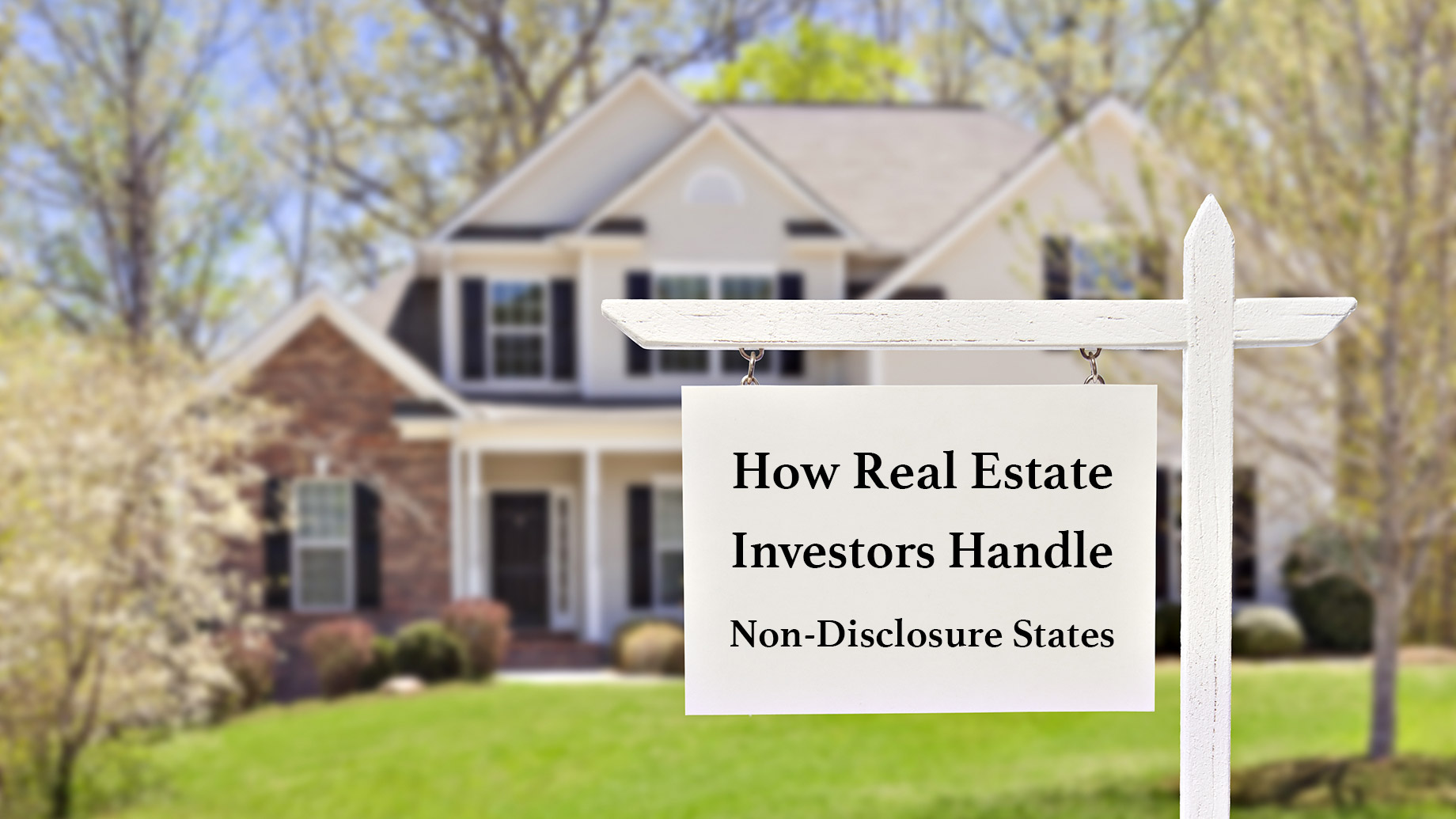
A lot of real estate investors don’t take the time to consider how non-disclosure states affect their business. However, the fact is that these states have made it harder to sell a home in many instances and, more importantly, have made it very difficult for a homeowner to get the full value of the property.
The concept of non-disclosure states that the property should be sold at a cost which does not include any loss to the buyer. It is important for investors to know how they should handle these transactions. Even though there are many states that strictly implement this law, there are some states where non-disclosure laws do not apply at all. You can check out a non disclosure states map that shows these states.
What The Laws Say
In some cases, state laws are enacted with the purpose of encouraging investors to go into certain areas and sell their properties at an amount that is lower than what they would normally pay. If the investor has to pay taxes on the property, he can sell it for a higher price, and this will prevent the seller from incurring taxes on a bigger scale.
Apart from that, some non-disclosure states also have certain limitations to its application. For example, some states may only allow the seller to charge the buyer a price that does not exceed the amount which is owed by the seller to the state. There are also some states where the seller will not be required to give the buyer the documents regarding the property. There are some other states where the seller will be allowed to pay off the buyer’s loan before he sells the property.
As we all know, there are some states where real estate investors are allowed to pay a lesser price for the property than that which is payable by the state. This is because of the fact that the state is not willing to pay taxes on the property. However, the price of the property should be more than what the seller can afford to pay to the state. As you can see, even if the state is willing to pay taxes on the property, the state will not be able to tax the seller at the same amount.
In most cases, the sale of the property is a win-win situation for both the investor and the state. Both of them benefit from the transaction. But, when nondisclosure is involved, the investor will have to worry about the consequences.
First and foremost, the state will be able to take away the property from the investor. The seller cannot sell the property in another state. If this happens, the investor will have to relocate to a different area to keep his investment intact.
All In The State
Also, the non-disclosure states may not be able to take any of the profits or earnings of the investor from the property. These are the losses which the investor is responsible for paying off. with the help of taxes. If this happens, the investor will have to pay more taxes to the state than what is due and this can lead to a large amount of penalties.
So, when we talk about how real estate investors should handle non-disclosure states, we have to look out for states that are strict and also for states which do not apply at all. We need to understand the difference between the two.
When it comes to states that are strict, it is best for real estate investors to stay away from these states. There are only a few states that are strict and they will not allow investors to do anything that will lead to a loss of profit or a loss of income.
However, the real estate investors need to stay away from states that are not strict. There are states which are not strict, but allow investors to pay their way through the deal. These states will also not allow investors to pay their way through the deal with their own means. So, in most states, it is best to have an attorney by your side.
Conclusion
One of the biggest problems facing real estate investors is the lack of knowledge about how they can handle non-disclosure states. To avoid losing your home to a state which does not allow you to disclose your finances, it is vital that you are aware of these rules. In addition, it is also important to know how you can negotiate with these states to get them to lower their property taxes or to reduce their fees and help you make a profit. If you have ever heard of a real estate investor who has successfully handled non-disclosure states, then you know that he is one of the best in the business.